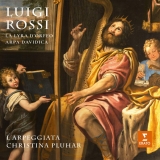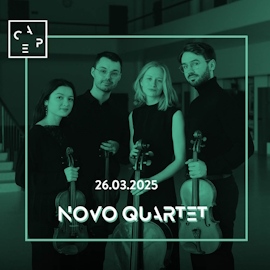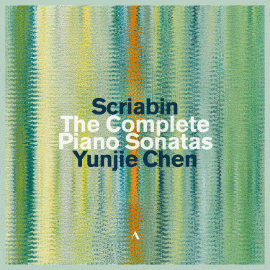 Luigi Rossi: La Lyra d’Orfeo & Arpa Davidica (Arien, Ensembles, Instrumentalmusik); Werke von Giovanni Felice Sances, Marco Marazzoli, Anonymus; Véronique Gens, Sopran, Céline Scheen (Sopran), Giuseppina Bridelli (Mezzosopran, Philippe Jaroussky, Jakub Jozef Orlinski, Valer Sabadus, Counterenor), L'Arpeggiata, Christina Pluhar; 3 CDs Erato 9029537230, Aufnahmen 2005, 2018, 2019, Veröffentlichung 11/2019 (159') - Rezension von Remy Franck
Luigi Rossi: La Lyra d’Orfeo & Arpa Davidica (Arien, Ensembles, Instrumentalmusik); Werke von Giovanni Felice Sances, Marco Marazzoli, Anonymus; Véronique Gens, Sopran, Céline Scheen (Sopran), Giuseppina Bridelli (Mezzosopran, Philippe Jaroussky, Jakub Jozef Orlinski, Valer Sabadus, Counterenor), L'Arpeggiata, Christina Pluhar; 3 CDs Erato 9029537230, Aufnahmen 2005, 2018, 2019, Veröffentlichung 11/2019 (159') - Rezension von Remy Franck
Luigi Rossi (1598-1653) stand im Dienst von drei berühmten italienischen Herrscherfamilien, den Borghese, den Barberini und den Medici, sowie des französischen Königs Louis XIV. Sein Orfeo war eine der ersten Opern, die je in Frankreich aufgeführt wurden. Die Musik dieses einst so bedeutenden Komponisten ist heute nicht besonders bekannt. Umso begrüßenswerter ist daher die neue Produktion von L’Arpeggiata.
Die Aufnahmedaten zu diesem Album liegen weit auseinander. Das ist durch einen Rechtsstreit bedingt, der das Programm La Lyra d’Orfeo betrifft. Christina Pluhar und Véronique Gens hatten es 2005 aufgenommen. Ein lange andauernder Prozess verhinderte die Veröffentlichung. Die Zeit, bis die Gerichte zu einer Lösung fanden, nutzte Pluhar, um in Archiven in Rom und Paris zu forschen und das Material für zwei weitere CDs zusammenzutragen, mit vielen Ersteinspielungen. Nach 15 Jahren war es dann endlich soweit, und beide Projekte konnten zusammen auf drei Schallplatten veröffentlicht werden.
La Lyra d’Orfeo mit Véronique Gens ist ein hinreißendes Programm. 2005 war die französische Sopranistin auf dem Zenit ihrer Kunst. Mit einem wunderbaren Farbenarsenal, einer quasi makellosen Vokalführung und einer herrlichen Legatokunst fasziniert sie in diesen wunderschönen Arien des Frühbarocks.
Arpa Davidica gibt der Sopranistin Céline Scheen und der Mezzosopranistin Giuseppina Bridelli sowie den Countertenören Philippe Jaroussky, Jakub Jozef Orlinski und Valer Sabadus die Möglichkeit, einen Meistersinger-Wettstreit auf höchstem Niveau auszutragen. Nichts gegen die Damen, aber wenn drei der besten Countertenöre unserer Zeit singen, ist höchster Genuss angesagt: Valer Sabadus mit seiner charakteristischen, blumig-warmen und betörenden Stimme, Philippe Jaroussky mit seinem ätherischen Gesang und schließlich Jakub Orlinski, der dramatischste und darstellerisch perfekteste von den drei.
L’Arpeggiata begleitet stilvoll aufgrund eigener Rekonstruktionen der Instrumentalbegleitung, da es in den Manuskripten Rossis kaum Hinweise dazu gibt. Das ist Frühbarock in exquisitester Form!
Luigi Rossi (1598-1653) served three famous Italian families, the Borghese, Barberini and Medici, as well as the French King Louis XIV. L’Orfeo was one of the first operas ever performed in France. The music of this once so important composer is not well known today. All the more welcome is the new production of L’Arpeggiata.
The recording dates for this album are far apart. This is due to a legal issue concerning the La Lyra d’Orfeo programme. Christina Pluhar and Véronique Gens recorded it in 2005. A legal dispute prevented the release. Pluhar used the time until the courts reached a solution to search archives in Rome and Paris and to compile the material for two more CDs, with many first recordings. After 15 years the time had finally come, and both projects could be released together on three CDs.
La Lyra d’Orfeo with Véronique Gens is an enchanting programme. In 2005, the French soprano was at the zenith of her art. With magnificent colours, a virtually flawless vocal performance and a wonderful legato she is absolutely fascinating in these beautiful arias of the early baroque, mostly revolving around love.
Arpa Davidica gives the soprano Céline Scheen and the mezzo-soprano Giuseppina Bridelli as well as the countertenors Philippe Jaroussky, Jakub Jozef Orlinski and Valer Sabadus the opportunity for a singing competition at the highest level. Nothing against the ladies, but when three of the best countertenors of our time are performing, the result is most enjoyable: Valer Sabadus with his characteristic, flowery-warm and beguiling voice, Philippe Jaroussky with his ethereal singing and finally Jakub Orlinski, the most dramatic and most perfect of the three, are an superb team for this music.
Since there are hardly any indications for an instrumental accompaniment in Rossi’s manuscripts, Christina Pluhar and L’Arpeggiata use own reconstructions that are perfectly fitting the various compositions. This is early baroque in its most exquisite form!





















